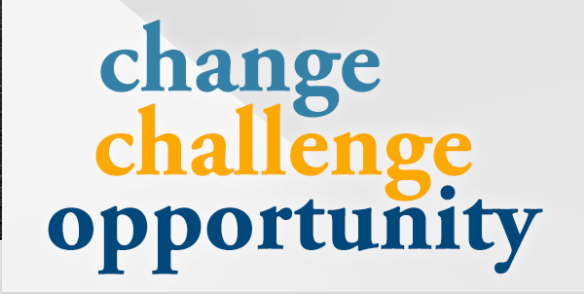
It’s another day to excel, and you may never get this opportunity again.
If you have the opportunity to visit my website this is the statement you find on the home page. Over the next few weeks the site will be revised to reflect the impact of some opportunities that I chosen to embrace during this first year of retirement. Simply put, it’s been a year of opportunity. I’ve developed some new skills (sailing), pursued some on-line coursework (Penn’s Positive Psychology program), established a growing readership for our newsletter, and pursued a number of volunteer opportunities. As I reflect on these experiences there is a common thread and it is this, when we embrace a new opportunity, the outcome will be determined by our willingness to learn from the experience and subsequently use this learning to become a better person and benefit others. Now, have you figured out the theme for this week?
Needless to say, over the past week the theme of “Opportunity” drove my reading. One of the first articles I read was written by Mike Myatt in 2010. Leadership, Timing and Opportunity considers the timeless importance of the critical link between timing and opportunity. Myatt opens with a powerful statement, “The question is not whether these opportunities exist, but rather what you will do with them when they cross your path. I believe one of the key differences between excellence and mediocrity is the ability to not only recognize opportunities, but to also possess an understanding and willingness to exploit said opportunities. Exploiting opportunities requires you not only possess vision, but also a corresponding bias to action (and a bit of courage as well).” Myatt continues by warning us that opportunity operates on the law of diminishing returns. The longer we wait to seize the opportunity the smaller the return. He then provides five suggestions for spotting and evaluating opportunity.
• Alignment – Is the opportunity in alignment with the overall vision and mission of the organization?
• Advantage – Does the opportunity provide a unique competitive advantage or at least fill an existing void?
• Assessment – Is the opportunity affordable, feasible, adoptable and most important actionable?
• Accountability – The opportunity must be detailed and deliverable on a schedule. Can the opportunity being considered be measured?
• Achievement – What achievement results from the implementation of the four previous ideas. Unrealized opportunity is a waste of time.
Myatt concludes the article with a challenge, “As you approach each day I would challenge you to consistently evaluate the landscape and seize the opportunities that come your way. Better to be the one who catches the fish than the one who tells the story of the big one who got away.”
So how do we find that big one? In this day and age you can’t wait for opportunity to come knocking because someone else will probably meet it on the sidewalk and it will never get to your door. Daniel Burrus, author of, The Anticipatory Organization: Turn Disruption and Change into Opportunity and Advantage suggests we “Anticipate”. His blog post of May 24 entitled, “What’s the Secret to the Next Best Thing? Anticipate” suggests that to increase the value of their services, organizations leverage the impact of technology and market disruption to pursue anticipatory strategies and develop a better understanding of their customer’s future needs. In other words, discover opportunities and present them to clients before the client is even aware of their existence. Burrus suggest two simple strategies to accomplish this:
• Know Your Client/Customer Better – Powerful tools exist to help organizations better understand product use, customer satisfaction, and other essential information. The use of this information increases the organization’s agility to adapt, anticipate new needs, and design new opportunities that will better meet customer desires.
• Increase Disruption – Disruption is to be embraced. This is a bedrock principle of an Anticipatory Organization. Organizations that learn to anticipate game-changing ideas, technology, etc. become the game-changers in their own industry (“Far better to be the disruptor rather than the disrupted!”).
Many years ago I remember making a presentation in which I asked the audience, “What is impossible for us to do today, but if it could be done would fundamentally improve the way in which we deliver services to our students (clients)? I encouraged them to consider the question carefully for a very simple reason, someone will come up with an answer and from that point on everyone else plays catch-up, while the one who answered it considers the next opportunity! Each morning you have a new opportunity to excel, a new opportunity to create or re-create, a new opportunity to give back. Carpe Diem!
Celebrate Change
Embrace the Challenge
Seize the Opportunity
